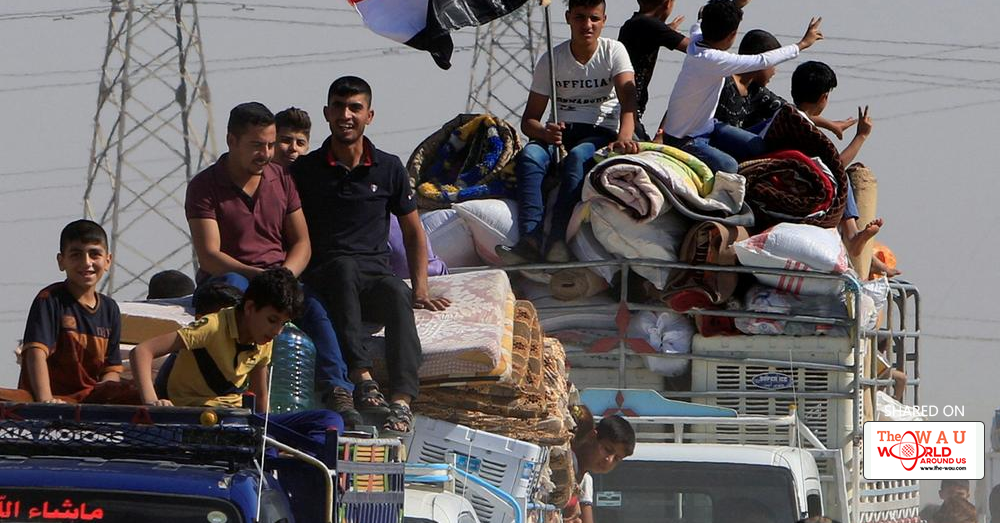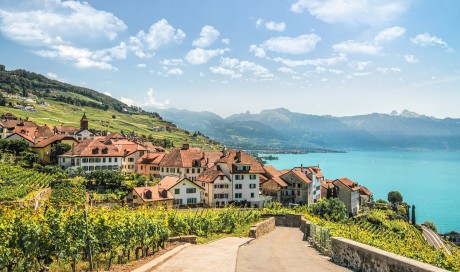Iraqi forces declared victory on Wednesday after they retook more disputed areas from Kurdish forces in response to an independence vote last month.
Government troops alongside Shiite paramilitary forces pushed into the multi-ethnic city of Kirkuk on Monday as Kurdish fighters gave up their positions.
On Wednesday, the Iraqi military announced that its troops had completed the operation to retake not just Kirkuk and its lucrative oil fields, but formerly Kurdish-held areas in Nineveh and Diyala provinces.
The offensive enabled Kurdish peshmerga forces to return to their positions they held in June 2014, before ISIL invaded northern and western Iraq, forcing the Kurds to advance south and take the territory.
The largely bloodless operation this week dealt a body blow to the finances of Iraq's autonomous Kurdish region, which had derived much of its revenue from exports of Kirkuk oil.
The operation comes three weeks after the Kurds held an independence referendum, which Iraq's prime minister Haider Al Abadi said on Tuesday was "now a thing of the past".
Mr Al Abadi called for dialogue with the Kurdistan Regional Government, saying he wanted a "national partnership" based on Iraq's constitution.
Kurdish claims to the lost territories have long been a cherished national cause and their abandonment, almost without a fight, triggered recriminations against the Kurdish leadership.
"Security has been restored in sectors of Kirkuk, including Dibis, Al Multaqa, and the Khabbaz and Bai Hassan North and South oil fields," the federal government's Joint Operations Command (JOC) said.
"Forces have been redeployed and have retaken control of Khanaqin and Jalawla in Diyala province, as well as Makhmur, Bashiqa, Mosul dam, Sinjar and other areas in the Nineveh plains."
The military's announcement came a day after president of Iraqi Kurdistan Masoud Barzani vowed to keep working towards Kurdish independence, saying the referendum was not held "in vain".
He did not call for dialogue with the government, but stressed "Kurds have always been against waging wars and have worked in pursuit of peace."
Mr Barzani also blamed the loss of Kirkuk on internal Kurdish disputes.
The surrender of Kirkuk took place amid the internal divisions among the two main ruling Kurdish political parties, the Kurdish Democratic Party (KDP) of Mr Barzani and the Patriotic Union of Kurdistan (PUK) of his late rival Jalal Talabani.
Both parties control their own Kurdish forces, known collectively as the peshmerga. While Mr Barzani's KDP strongly supported the independence referendum, some PUK figures were skeptical of the consequences it would have on the Kurdistan region.
Mr Barzani said "the withdrawal of Kurdish peshmerga troops in Kirkuk was [the] result of a political party's unilateral decision", referring to the PUK.
Turkey's foreign minister Mevlut Cavusoglu, meanwhile, said leaders of Iraq's autonomous Kurdish region "miscalculated" in going ahead with last month's independence referendum.
Mr Cauvusogly said the "mistake" of the Iraqi Kurds in proceeding with the non-binding vote was rectified by Baghdad when Iraqi forces retook Kirkuk.
He said that "Iraqi Kurdish leaders had thought the vote would unite the Kurds but that it instead divided Iraq's Kurdish community" despite Ankara's warnings which was "ignored" by the Kurds.
While, the Turkish president Recep Tayyip Erdogan said he holds the leadership of the Iraqi Kurdish region responsible for the “bloodshed” that ensued after the referendum.
Scattered clashes broke out as Iraqi forces pushed into Kirkuk on Monday, but most Kurdish forces pulled out without a fight. The city is home to Kurds, Arabs, Christians and a Turkmen community with close historic and ethnic ties to Turkey.
"What right do you have to lay claim on Kirkuk?" Mr Erdogan said, "what history do you have in Kirkuk? What business do you have in Kirkuk?"
Meanwhile, the United Nations reported on Wednesday that thousands of displaced people are returning to their homes in Kirkuk. "In the past 48 hours, an estimated 61,200 people have been displaced in areas around Kirkuk" UN's assistance mission in Iraq said.
Humanitarian partners have dispatched mobile health clinics and are providing hot meals and food parcels to families who have fled.
“Authorities have confirmed that the majority of displaced families from Kirkuk are already returning to their homes in Kirkuk city,” Lise Grande, Humanitarian Coordinator for Iraq, said.
“Most of the families who are still displaced are staying with families and host communities," Ms Grande said. “We call on all parties to do everything possible to shield and protect all civilians impacted by the current situation."
Share This Post












